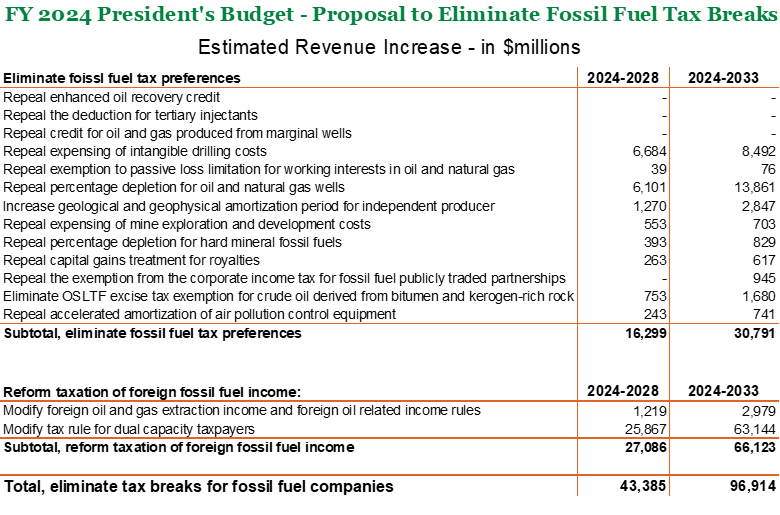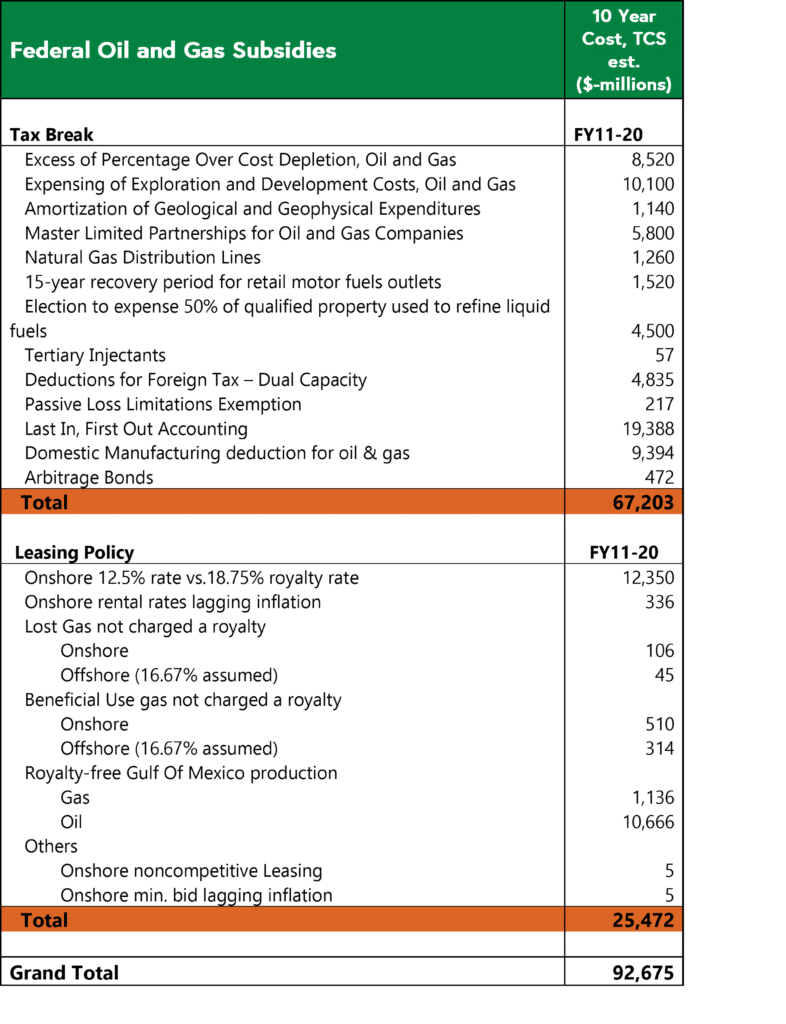As anticipated, the President’s fiscal year (FY) 2024 budget includes proposals to eliminate tax preferences for fossil fuel companies, some of which have been written into the tax code for over a century. The administration has called for eliminating these tax breaks in their FY2022 and FY2023 budget proposals. However, while tax breaks for both fossil fuel companies’ domestic and foreign income were on the cut list in the President’s FY2022 budget request, tax breaks for foreign income were no longer on the chopping block in the President’s FY 2023 budget request. We are pleased to see that the President’s FY2024 budget request added foreign fossil fuel income tax breaks back to the cut list.
Eliminating the tax subsidies would increase revenue for taxpayers by almost $97 billion over 10 years. The biggest savings come from the proposed modification of tax rules for dual capacity taxpayers, which will bring in $63 billion over 10 years. Eliminating percentage depletion and expensing of intangible drilling costs will save taxpayers $13.9 billion and $8.5 billion, respectively. See all proposed cuts in the table below:

However, the Last-In First-Out (LIFO) inventory accounting rule is absent from the proposed fossil fuel tax break cuts. Oil and gas companies use LIFO to increase their book costs and thus reduce the total amount of income that gets taxed. While this year’s proposal matches similar efforts in budget requests during the Obama Administration, President Obama included cutting LIFO in the FY2017 president’s budget. The Treasury Department estimated it would recoup $81 billion in revenue over 10 years, though at that time the corporate tax rate was higher, making the break more valuable.
The proposed oil and gas tax cuts in the FY24 budget are long overdue and needed more than ever. Oil and gas commodity prices continue to soar and the industry is posting record breaking profits. In fact, the top six international oil and gas companies doubled their profits in 2022 compared to 2021, meanwhile distributing tens of billions of dollars’ worth of stock buyback to their investors. Despite being a long established, mature, and profitable industry, oil and gas companies have been receiving subsidies through preferential tax treatment, as well as sweetheart leasing terms like below market rate royalty, rent, minimum bid and loopholes like noncompetitive leasing, for decades. From FY2011 to FY2020, these subsidies cost taxpayers more than $90 billion in foregone revenue. While we were glad to see that the Inflation Reduction Act (P.L. 117-169) included some much-needed federal oil and gas leasing reforms, like increasing the onshore oil and gas royalty rate, there must be a stronger commitment to end broader fossil fuel subsidies across the federal budget. These subsidies do little more than pad the bottom line of the oil and gas industry.











